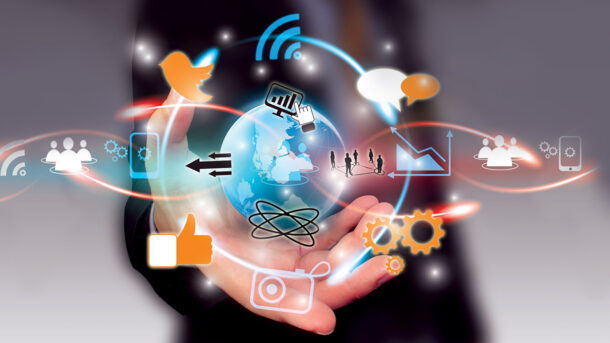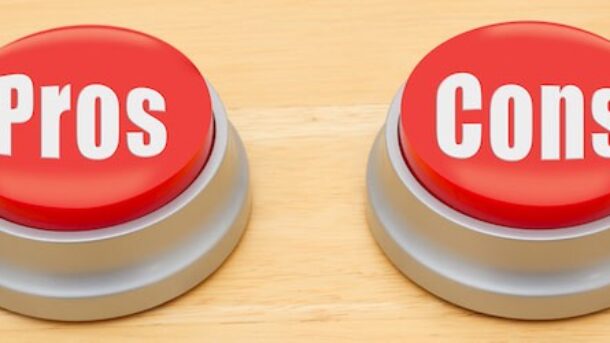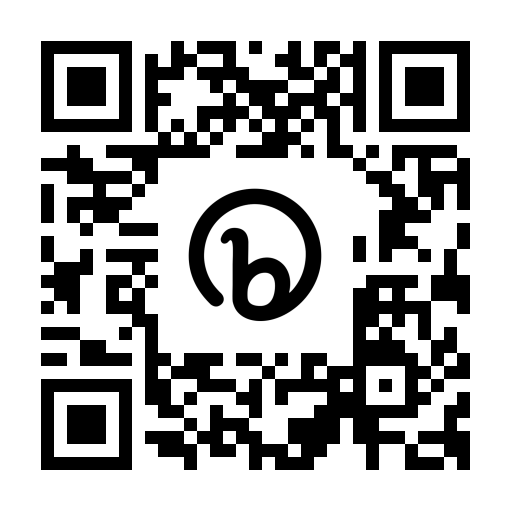Table of Contents
- The Origins of Freedom of Speech: A Historical Overview
- The Ongoing Debate Around Freedom of Speech: Pros and Cons
- The Impact of Social Media on Freedom of Speech
- Understanding the Role of Freedom of Speech in Modern Politics
- Examining The Relationship Between Free Speech and Censorship
- Exploring the Relationship Between Hate Speech and Freedom of Speech
- The Supreme Court’s Role in Defining Freedom of Speech
- How Technology Has Changed the Way We Exercise Freedom of Speech

The Origins of Freedom of Speech: A Historical Overview
The concept of freedom of speech has been integral to the development of Western society, and its roots can be traced back to ancient Greece. Freedom of speech has been seen as a fundamental right and a cornerstone of democracy since its conception, and it has gone through various iterations throughout history.The idea of freedom of speech first began to take shape in ancient Greece. The Sophists, a school of philosophy in ancient Greece, believed in the importance of individual autonomy and the right to freely express oneself. This school of thought influenced the development of democracy in Athens, and the right to freedom of speech was enshrined in law. This right was further developed in Roman times, when the concept of freedom of speech was extended to include the idea of free expression for all citizens.In the Middle Ages, the concept of freedom of speech was seen as a privilege rather than a right, and it was often limited by the power of the Church. Nevertheless, the idea of freedom of speech was still present in some medieval texts, such as the Magna Carta, which stipulated that the king could not pass laws limiting the freedom of speech.The Enlightenment period saw a renewed focus on the importance of freedom of speech, and it was during this period that the modern understanding of the concept began to take shape. A number of influential thinkers, including John Locke, argued that all citizens should have the right to express themselves freely. This idea was further developed in the American and French revolutions, which sought to guarantee the right to freedom of speech for all citizens.Today, freedom of speech is seen as a fundamental right that is protected by international law. While it is still subject to some restrictions, such as libel and copyright laws, it remains an integral part of modern democracy and is seen as a basic human right.In conclusion, the concept of freedom of speech has a long and varied history, and its origins can be traced back to ancient Greece. It has gone through various iterations throughout history, but the modern understanding of the concept has been shaped by the Enlightenment period and the revolutions of the 18th century. Today, freedom of speech is seen as a fundamental right that is protected by international law.
The Ongoing Debate Around Freedom of Speech: Pros and Cons
Freedom of speech is one of the most hotly contested topics in modern society, with passionate arguments from both sides of the debate. On one hand, freedom of speech is a fundamental human right and an essential component of a free, democratic society. It allows people to express their opinions, challenge the status quo, and exchange ideas, ensuring that power remains in the hands of the people. On the other hand, freedom of speech can be abused, allowing for the spread of hateful and inflammatory rhetoric, which can lead to violence and disrupt social harmony.The pros of freedom of speech are undeniable. It empowers individuals and communities to express their views without fear of repression or retribution, and it allows for the free exchange of ideas, which can lead to the emergence of new and better ways of doing things. Freedom of speech also encourages critical thinking and analytical skills, as people are able to challenge and debate ideas without fear of censorship. Finally, freedom of speech is a cornerstone of democracy, as it allows citizens to hold their governments accountable and ensure that their voices are heard.The cons of freedom of speech are also significant. One of the major issues is that it can be abused and lead to the spread of hatred and bigotry. This can create an atmosphere of intolerance and division, and it can lead to violence against vulnerable groups. Moreover, freedom of speech can be used to manipulate the public and spread false information, which can lead to significant harm. Finally, unrestricted freedom of speech can lead to the disruption of public order, as people can say or do whatever they want without any regard for the safety of others.Ultimately, freedom of speech is a complex issue and it requires a delicate balance between ensuring people’s rights to express themselves and protecting vulnerable groups from harm. While there are pros and cons to this debate, it is clear that freedom of speech is an important right that should be respected and protected.
The Impact of Social Media on Freedom of Speech
The impact of social media on freedom of speech is both complicated and profound. On the one hand, social media provides people with unprecedented opportunities to express their opinions and engage in meaningful conversations with others. This allows people to express their opinions and ideas more freely than they would have been able to before the advent of social media. On the other hand, however, social media also has the potential to restrict freedom of speech, as it can be used to spread misinformation, intimidate and harass people, and even incite violence.When it comes to social media and freedom of speech, there is no easy answer. On the one hand, social media can be a powerful tool for amplifying people’s voices and allowing them to express themselves more freely than ever before. On the other hand, it can also be used to spread lies and incite hatred. As with all tools, it is ultimately up to the user to decide how to use it.That being said, the impact of social media on freedom of speech should not be taken lightly. It is important for people to be aware of the potential risks associated with using social media and use it responsibly. We should also be mindful of the power of social media to shape public opinion and understand its potential to be abused. Ultimately, it is up to individuals to ensure that their use of social media is responsible and respectful of the freedom of speech of others.
Understanding the Role of Freedom of Speech in Modern Politics
Freedom of speech is one of the most fundamental rights of a society, and its role in modern politics cannot be overstated. Freedom of speech allows citizens to express their views and opinions without fear of retribution from the government, and it also allows for the expression of dissenting opinions, creating a space for open dialogue and debate. It is essential for the development of a healthy democracy, providing citizens with the ability to challenge the status quo, to voice their concerns, and to engage in meaningful political discourse.At the same time, freedom of speech also has its limits. In certain situations, it can be used to spread hate and incite violence, which can lead to dangerous and even deadly consequences. In these cases, it is necessary to balance the right of free speech with the need to protect the safety of citizens.Overall, the role of free speech in modern politics is essential. It provides a platform for political expression and debate, and it allows for the airing of grievances and the challenging of existing power dynamics. However, it is important to remember that with great power comes great responsibility. Freedom of speech must be used responsibly and ethically, and it must be balanced with the need to protect citizens from harm.
Examining The Relationship Between Free Speech and Censorship
The relationship between free speech and censorship is a complex one. On the one hand, freedom of speech is vital for the expression of ideas and opinions. It is essential for a healthy democracy, as it allows for a variety of opinions to be heard and considered. On the other hand, censorship can be seen as a necessary tool for protecting vulnerable individuals, or for preserving public order.At its heart, free speech should be seen as a right, not a privilege. It is essential for people to be able to express their ideas and opinions without fear of retribution. This right is enshrined in the constitution of many countries, including the United States. At the same time, censorship is often necessary to protect vulnerable individuals from hate speech or other forms of expression that could potentially cause harm.The debate between free speech and censorship is complex, and there is no definitive answer. In some cases, censorship can be an appropriate response to protect vulnerable individuals, while in other cases it can be an infringement on the right to free speech. Ultimately, it is up to each individual to decide what is acceptable in their own context. The key is to strike a balance between the two, and to ensure that the right to free speech is respected and protected.
Exploring the Relationship Between Hate Speech and Freedom of Speech
The relationship between hate speech and freedom of speech is complex and has been widely debated since the dawn of democracy. On one hand, freedom of speech is a fundamental right of freedom, enshrined in the First Amendment of the U.S. Constitution, that allows citizens to express their thoughts and opinions without fear of legal repercussions. On the other hand, hate speech can be damaging to those on the receiving end and, in some cases, lead to violence.It is important to distinguish between the two concepts, as they can overlap and, in some cases, be difficult to distinguish from each other. A hateful statement may be considered free speech, as it typically does not call for any direct action against another person. However, it can often still be considered hate speech if it is aimed at a group or individual based on their race, religion, gender identity, etc.At the same time, it is important to consider the consequences of allowing hateful speech to be freely expressed without any legal or social consequences. Hate speech can create a hostile and dangerous environment for those who are targeted and can lead to physical and emotional harm. It can also have a long-term impact on the psychological wellbeing of those who are exposed to it, leading to feelings of fear, anxiety, and a lack of safety.In my opinion, it is important to maintain a balance between freedom of speech and hate speech. Freedom of speech should be protected, as it is a fundamental right that allows us to express our opinions freely. However, it should be balanced with measures that protect vulnerable individuals from the harms of hate speech. This could include laws and regulations that protect against discrimination, as well as social measures that encourage respectful discourse and discourage the spread of hate speech.In conclusion, the relationship between hate speech and freedom of speech is complicated and often contentious. It is important to understand the difference between the two concepts and be aware of the harms of hate speech. It is also essential to strike a balance between protecting freedom of speech and protecting vulnerable individuals from the harms of hate speech.
The Supreme Court’s Role in Defining Freedom of Speech
The Supreme Court of the United States has long been tasked with balancing the right to free speech under the First Amendment with the need to protect the public from potential harm. The court has consistently sought to protect the right to free speech while ensuring that it is not used as a platform for hatred or violence. As such, the Supreme Court has often been forced to make difficult decisions regarding the boundaries of free speech.The Supreme Court’s interpretation of the First Amendment has been incredibly influential in defining freedom of speech. Through its decisions, the court has determined which kinds of speech are protected, which can be regulated, and which can be prohibited. The court has also set limits on the government’s ability to restrict speech, and established tests for determining when a restriction is permissible.The Supreme Court has established that speech that incites violence, or contains obscenity or libel, is not protected by the First Amendment and can be regulated. The court has also upheld restrictions on speech that is deemed to be a “clear and present danger” to public safety or morality. Furthermore, the court has determined that speech can be limited to protect minors from potentially harmful materials.The Supreme Court’s rulings have had a profound effect on our understanding of freedom of speech. While it is clear that the court has attempted to balance the right to free speech with the need to protect the public, it is also clear that the court’s decisions have had a major impact on our understanding of what is and is not protected speech. This has been particularly true in recent years, as the court has had to grapple with the implications of new technology and social media.Ultimately, the Supreme Court’s role in defining freedom of speech has been critical in preserving the right to free speech while ensuring that it is not used as a platform for hatred and violence. As society continues to grapple with the implications of new technology and the changing landscape of free speech, it is important to remember the court’s role in protecting our fundamental right to free expression.
How Technology Has Changed the Way We Exercise Freedom of Speech
Technology has certainly changed the way we exercise freedom of speech. Where before, people would have to rely on traditional forms of communication such as print media, radio, and television, they now have access to a far wider range of platforms and tools. The internet has opened up a new world of expression, allowing people to spread their ideas and share their opinions with a much larger audience.Social media has been one of the most influential developments in this regard. Platforms such as Twitter and Facebook provide people with the ability to share their thoughts, ideas, and opinions with others from all over the world. This has enabled people to engage in meaningful conversations, challenge their own views, and learn from other perspectives. It has also allowed for people to become more vocal about controversial topics and engage in more open dialogue.The internet has also made it easier for people to access information, which has helped to increase public awareness and understanding of various issues. People can now research topics with ease and have access to a wide range of opinions and perspectives. This has helped to create a more informed public and increase the overall level of discourse.At the same time, technology has also presented some challenges to the way we exercise freedom of speech. With the rise of fake news and online trolls, it can be difficult to trust the accuracy of the information we come across. This can lead to a sense of distrust and hesitation when it comes to sharing our opinions. Additionally, there is the risk of censorship on many social media platforms, making it difficult for certain topics to be discussed openly.Overall, technology has certainly changed the way we exercise freedom of speech, for both better and worse. It has provided us with a platform to engage in meaningful discourse and debate, as well as access to a wide range of opinions and perspectives. But we must also be aware of the potential risks that come with using technology to express ourselves, such as the spread of misinformation and censorship.





